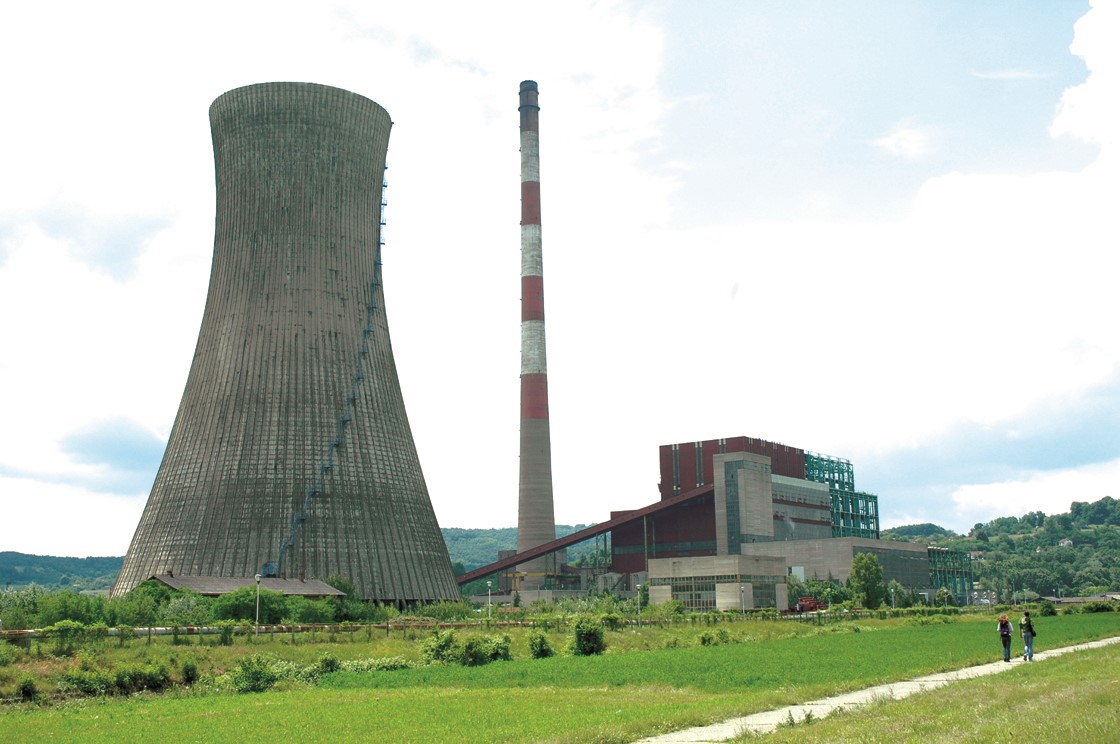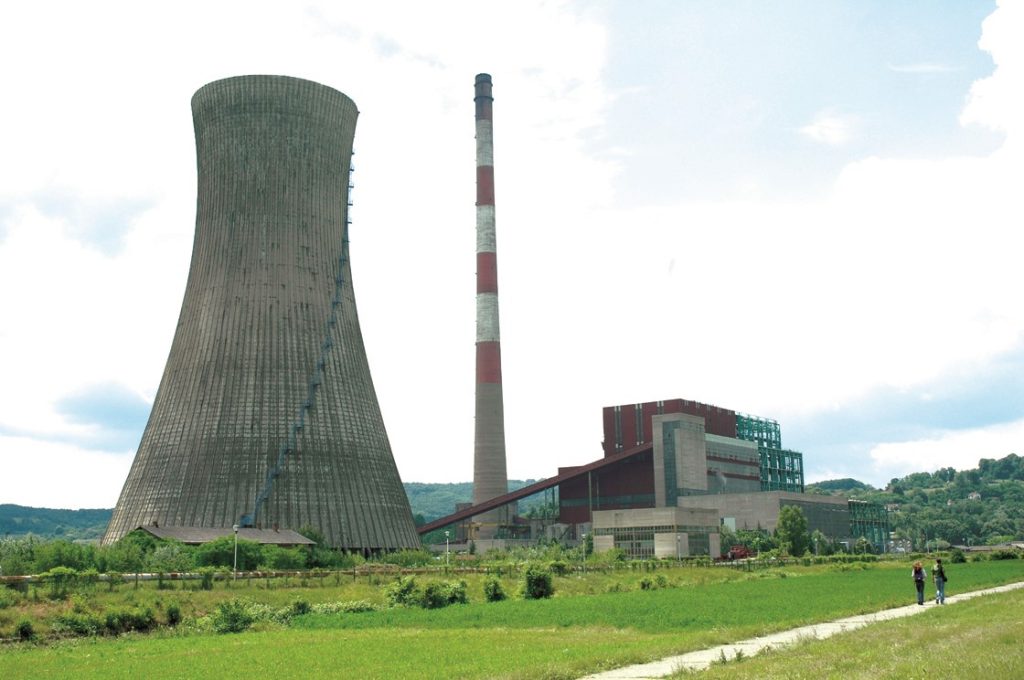UGLJEVIK – The construction of a drywall panel production factory in Ugljevik, which was scheduled to commence in April of this year, is not proceeding as planned. This 50 million Euro investment from China was announced in Ugljevik in February of 2022. RiTE Ugljevik.

The outcomes of Chinese multimillion projects in Bosnia and Herzegovina, which have been grandly announced over the past few years, can be encapsulated by the old proverb: “A promise is a comfort to a fool”.
The construction of a drywall panel production factory in Ugljevik, which was scheduled to commence in April of this year, is not proceeding as planned.
This Chinese investment, worth 50 million Euro, was announced in Ugljevik in February of The company “Beijing New Building Materials-BNBM” has opted to acquire a 90% stake in the production of drywall panels, with the remaining 10% being acquired by the Mine and Thermal Power Plant (RiTE) Ugljevik. The then-director of RiTE Ugljevik Čedomir Stojanović expressed his anticipation for the employment of 100 new workers through this investment, describing it as “a significant development for the region, as well as for Republika Srpska”.
The results on the ground, two years later, reveal that the public has been misled.
According to information obtained by InfoRadar, the Chinese have been assigned a new deadline for completing the construction of the factory – by the end of 2026. Diko Cvijetinović, the director of the Ugljevik Mines and Thermal Power Plant (RiTE), states that a “new plan” is now in effect.
– The deadline has been extended to the end of 2026 due to changes in the market and pricing affecting investors. Efforts are underway to resolve property-legal issues, as the land is partially owned by the Republika Srpska and partially by RiTe, explains Cvijetinović.
He adds that preparatory works are underway.
– The preliminary design has been completed, and once all matters concerning the land are resolved, the final contract will be drafted. Diko Cvijetinović emphasizes that this process will be concluded by the year’s end. Furthermore, he explains that in 2026, RiTE will undergo a significant six-month capital overhaul.
He elaborated that the shareholders’ assembly of RiTE Ugljevik has ratified the contract to the company “BNBM Eastern Europe”, predominantly owned by the Chinese “BNBM” with a 90 percent stake. This contract obligates RiTE Ugljevik to ensure a continuous supply of raw materials.
The Chinese investor's objective is to establish the world’s largest factory for the production of drywall panels and to dominate the entire European market with their sales. Annually, the factory is anticipated to receive 70.000 tons of coal and 250.000 tons of plaster, generated as a by-product from the desulfurization process.
The construction site is planned to span approximately 18 hectares, with the projected gross construction area of the facilities totaling around 60.000 square meters.

In the contract, RiTE committed to supplying coal sourced from the mine. However, in case of insufficient supply, the company will be obligated to procure it from the market.
Petar Đokić, the Minister of Energy and Mining of Republika Srpska, was present at the signing of the aforementioned contract. He informed the media that the production facility would produce approximately 40 million square meters of drywall panels.
Additionally, he emphasized that this development would significantly contribute to the further expansion of industrial production in Republika Srpska. Following the ceremony held in Ugljevik, the Ministry of Energy and Mining has provided rare updates on this matter.
Minister Đokić has not responded to our phone calls or emails, and the Ministry directed us to contact the management of RiTE Ugljevik for further inquiries.
As a reminder, in 2022, the management of RiTE Ugljevik entered into an agreement with the company “BNBM” to establish the joint venture “BNBM Eastern Europe”, initiating the project to construct a factory for producing drywall panels and articles of plaster.
The plaster factory holds significant importance for RiTE Ugljevik, as the annual costs of operating the desulfurization system amount to between 15 and 20 million marks. By selling plaster, the company could offset a portion of these expenses and resolve the issue of plaster disposal.
In the same year, seven months later, the Chinese company Cosco Shipping announced the launch of a “fast intermodal service – Land Sea Express” in Tuzla. This initiative will establish Tuzla as the first city in BiH to have a direct railway connection on the “New Silk Road”.
It was also announced at that time that this service would incorporate an intermodal connection via rail traffic, with the project receiving support from the Railways of the Federation of Bosnia and Herzegovina.
Railways of FBiH confirmed to InfoRadar that they have provided support to this project “by ensuring capacity for the anticipated frequency of container trains and meeting other requirements for organizing transportation between the ports on the Adriatic Sea (Port of Rijeka and Port of Ploče) and the container terminal in Tuzla, and vice versa.”
– In the preceding period, the FBiH Railways arranged “ad hoc” transportation through the terminal for the Cosco Shipping company. However, this arrangement did not constitute a permanent service. Undoubtedly, ŽFBiH d.o.o. Sarajevo has its vested interest in this project, which primarily relies on its main holder, the Cosco Shipping company, said the Railways of FBiH.
The company Dragon Maritime See, specializing in providing transport services for Cosco Shipping’s goods, did not respond to our inquiries regarding the current status of the mentioned project and whether or when it will be realized.
They also didn’t provide any answers to the representatives of the BiH Agency for the Promotion of Foreign Investments.
– We attempted to contact Dragon Maritime company in Sarajevo, purportedly a representative office of Cosco Shipping, but they have not responded to our attempts to communicate, said FIPA.
The Cantonal Chamber of Commerce in Tuzla asserts that the company Riva, owned by Abdulah Avdagić, has commenced work on this project. Avdagić informed Inforadar that it is “the first dry port in this area and a project that no one has undertaken before in Bosnia and Herzegovina”.
He mentioned that it is a highly intricate project but refrained from discussing further details over the phone.
– You should not be writing about it and mentioning it in such a way. Avdagić believes that only a few individuals truly comprehend the complexity of the project. However, he has been under investigation since last year for tax evasion due to the suspicion of having distributed cash payments to workers in envelopes over a period of several years.
According to Admir Arnautović, spokesman for the Tuzla Canton Prosecutor’s Office, the investigation has been expanded to include Avdagić’s wife and several other individuals and is nearing its conclusion.
– We anticipate a decision from the prosecutor’s office very soon, said Arnautović.
A year prior to the aforementioned projects, during the 2021 online summit of the countries of Central and Eastern Europe (CEEC), the Ivovik project was unveiled, valued at approximately 137 million Euro. This initiative, owned and financed by a consortium of Chinese state-owned firms and banks, was touted as the “first tangible outcome of cooperation” between Beijing and Sarajevo.

This largest Chinese direct investment in BiH is the home to generations of villagers residing in the area. Among them is Ante Ivković, represented by lawyer Perica Babić.
Ivković and several of his neighbors assert that their land was expropriated and allocated to Chinese companies as part of an ambitious project to construct a wind farm.
The grand ambitions surrounding the wind farm have evolved into a convoluted saga of land disputes, with the method of awarding concessions raising significant questions
about its transparency and fairness.
Lawyer Perica Babić from Livno informed InfoRadar that the landowners have never granted consent to any authority or company for the utilization of their land.
– The latest development is that we have received a report from an expert confirming that the land belongs to the Ivković family. Based on this information and legal grounds,
it is unequivocally the property of the Ivković family. Presently, we are awaiting the scheduling of the main hearing before the court, which we hope will take place next month. During the hearing, we will request the return of the portion of the land that is unlawfully occupied and lies outside the concession area, said Babić adding that the construction of wind power plants is happening on land that is not part of the concession whatsoever.
One of the concessionaires involved is VE Ivovik d.o.o. Sarajevo, responsible for constructing the wind park of the same name. Ante Ivković and several of his relatives have initiated legal action against this company for trespassing.
As plaintiffs, the Ivković family demands that the defendant (Ivovik company) cease any further disturbance and restore the previous possession. Specifically, they seek an order for the removal of the added layer of material, restoration of the soil layer, and the return of the land to its original state as a meadow and pasture. A preliminary hearing was held in June last year at the Municipal Court of Livno.
According to the reports by Forbes BiH, at least eight legal complaints have been filed against Chinese companies in BiH concerning the plans to construct three new coal- fired thermal power plants: Tuzla 7, Ugljevik 3, and Stanari.
Additionally, the construction of the Banja Luka-Prijedor highway has been surrounded by controversy. The Chinese company overseeing the construction, Shandong High- speed International, has faced complaints regarding potential corruption and unauthorized alterations to the route, as reported by Forbes.
Among the Chinese investments that have not be materialized, the project to construct a tunnel between Istočno Novo Sarajevo and Pale deserves mention.
On February 21, 2022, the mayor of Istočno Sarajevo, Ljubiša Ćosić, signed a Memorandum of Cooperation regarding the construction of this tunnel that would connect municipalities of Istočno Sarajevo. The signing took place at the Sarajevo representative office of the Chinese company Sinohydro, which operates as part of the Power China group.
The tunneling project through Trebević was envisioned as a multi-year endeavor valued at 200 million Euro. Its purpose was to establish a traffic connection between Istočno Sarajevo and Pale. However, despite being planned, the project remains unrealized to this day.
Signing of the Memorandum of cooperation for the tunneling project
The Gacko 2 thermal power plant construction project, initially announced in 2017, had seemingly faded from public discourse. However, the narrative resurfaced last year with the emergence of information suggesting that Elektroprivreda RS established the company “Termoelektrana Gacko, development and investment”. Authorities assert that this entity is a Chinese and Czech corporation, tasked with completing the project within a four-year timeframe. Nonetheless, the non-governmental sector remains skeptical about the prospects of the endeavor.
The Agency for the Promotion of Foreign Investments, citing the China Global Investment Tracker research, asserts that Chinese investments in the form of credit have exceeded three billion US dollars in BiH until 2023.
In contrast, Transparency International BiH contends that Bosnia and Herzegovina faces a “systemic problem regarding investments from China”.
Traljić: To prevent abuses
– It is not only the case with investments from China but also with investments in general due to a lack of robust legal framework in BiH to prevent abuses. Under the
“Belt and Road” initiative, China has sought to invest substantial sums in developing countries. In instances where countries have robust regulations, Chinese investors adapt accordingly. However, in countries lacking strong institutions to address various challenges, there is a risk of falling into a debt trap. TI BiH emphasizes the importance of paying attention to such situations, adding that they have previously warned about this type of situations.
–We were focused on the construction of the Banja Luka – Prijedor highway, and there is also construction of a railway in Sarajevo. Both projects involve the same company, and both contracts are shrouded in secrecy. The terms under which the deals were negotiated and the financial models agreed upon are undisclosed, added Traljić.
He further highlights that many countries have taken out loans that they later struggled to repay.
– No one is opposed to investments, that much is clear. However, it’s crucial to have a responsible government and a transparent system. Citizens should be informed about the terms of borrowing and the conditions under which we engage in these projects, Traljić emphasized.
According to data from the Central Bank of BiH, Chinese investments in Republika Srpska exceed those in the Federation of BiH. Chinese investments primarily consist of loans extended by Chinese banks to Chinese companies for the construction of roads and power plants.
From 2010 to 2022, BiH received over $2.44 billion in loans from China for various projects, including construction of highways, hydro power plants, and investments in gasification and coal production, as reported by FIPA. It is emphasized that both investments and loans have significantly increased after 2019.
Info radar

